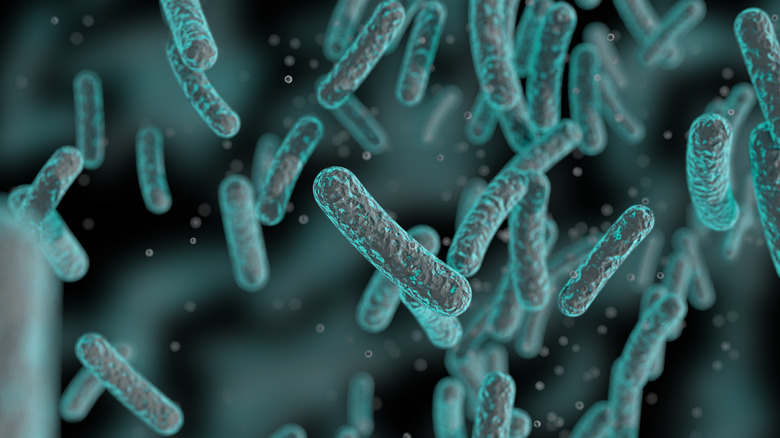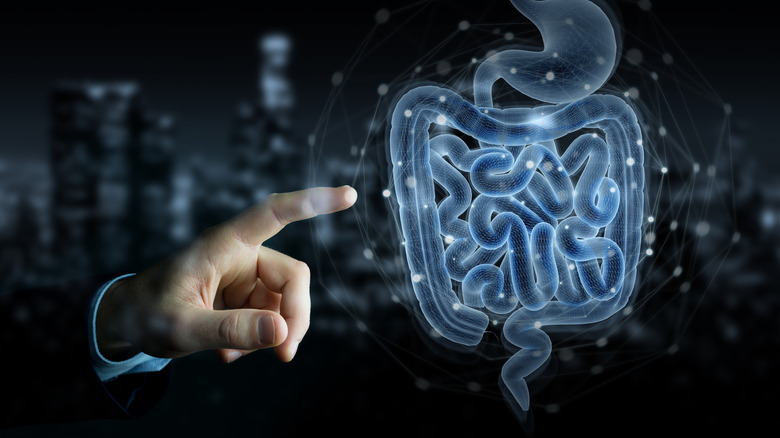We Are Less Than 50% Human. Here's Why
It is far from unreasonable to assume that the vast majority of a person's biomass is their own body. Certainly, there are some microbes that will cling to the skin, as well as bacteria in the digestive system that break down food, but how much of one's mass could these hitchhikers really account for? Recent studies estimate that these non-human organisms — including bacteria, single-celled eukaryotes, fungi, and other microbial life — in fact, make up 57% of all the cells in a human body (via MEL Magazine).
This surprisingly high number speaks to not only how much an individual picks up on their skin, but how prevalent and vital microorganisms are. They help in digestion, composing the immune system, and even stress regulation (via TED). The true scale of their presence may also hold previously unknown insights into how human biology interacts with them. It is hoped that their study in this context can be used to solve a variety of conditions that plague millions of people (via MEL Magazine).
New studies on the body's bacteria can potentially aid many fields of study
The proper function of the digestive system hinges on not only how much bacteria resides there but what type as well. Certain varieties are more adept at processing certain foods than others and if a person eats a diet that is too unbalanced (such as a diet high sugar in and/or fat) or is otherwise unhealthy then that can promote infections and inflammation (via VOA News). Understating what types of bacteria are present can therefore allow for healthier diets to be tailored to individuals.
A gross — yet evidently effective — way to treat disproportionate ratios of 'bad' bacteria has also been to transplant fecal cells into such individuals from someone with healthy bowels. Experiments with mice have yielded resounding success, with the healthier transplanted bacteria almost completely overtaking those already present. Analysis of various types of bacteria in an individual can also potentially help judge the severity of conditions not directly related to it. According to the BBC the severity of Parkinson's, depression, autism, and the efficacy of medication might all be determined by the analysis of a person's intestinal bacteria.

